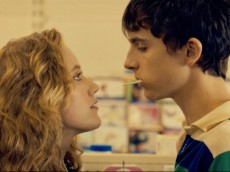イライジャ・バイナム監督『HOT SUMMER NIGHTS/ホット・サマー・ナイツ』インタビュー/Interview with writer-director Elijah Bynum about “Hot Summer Nights”
NeoL / 2019年8月16日 8時0分
イライジャ・バイナム監督『HOT SUMMER NIGHTS/ホット・サマー・ナイツ』インタビュー/Interview with writer-director Elijah Bynum about “Hot Summer Nights”
高校を卒業したばかりのダニエル・ミドルトン(ティモシー・シャラメ)は、感じは良いが人付き合いが苦手。大学へ行く前の夏を叔母の家で過ごすため、ケープコッドに来ていた。地元民とも夏の間バカンスにくる裕福な都会人とも馴染めないダニエルは、自分の居場所を探していた。そして地元でワルで有名なハンター・ストロベリー(アレックス・ロウ)に会い、行動を共にするようになる。ハンターは熱心すぎる数々の求婚者たちから妹・マッケイラ(マイカ・モンロー)を守っていないときは、マリファナを裕福な行楽客に売りながら生計を立てていた。夏が暑さを強める間、ダニエルは機会をうかがってはハンターに頼みこんで一緒に小さな街ケープ中に大麻を売りさばいた。マッケイラへの恋心を抑えられなくなったダニエルは密かに彼女との関係を深めていった、それが暴露されるまでは。
巨大な台風が迫っている1991年の夏を舞台にした『HOT SUMMER NIGHTS/ホット・サマー・ナイツ』。脚本監督は、この作品で長編映画デビューとなるイライジャ・バイナム。みどころはシャラメのひねくれていながらもチャーミングな演技。『イット・フォローズ』で主演をつとめ、注目を集めるモンロー。そしてジェームス・ディーンの生き写しのような新進俳優のロー。『HOT SUMMER NIGHTS/ホット・サマー・ナイツ』は、熱情と暴力で溢れる小さな街で起こった犯罪についての灼けつくような物語。(→ in English)
ーまず、このストーリーの元となったのはどういった出来事でしょう。
Elijah Bynum「私がマサチューセッツの大学へ通っていた時に、映画に出てくるダニエルとハンターにすごく似ているふたりに出会ったことがきっかけです。ひとりは物腰柔らかくシャイで、身近で一緒にいてホッとするようなタイプ。もうひとりは肩で風をきって歩くような街で一番有名な不良でした。彼らは一緒に大麻のディーラーを始めたんです。誰も同じ部屋にいる二人がビジネスパートナーだと思わなかったでしょう。意外な組み合わせのふたりは寄宿舎のあちこちで大麻を売り歩いていました。たちまち他の寄宿舎にも広まり、キャンパス中のみんなが彼らから大麻を買うようになって。彼らはキャンパスの外でも大麻を売り始めたけど、それが手に追えなくなることにまだ気づいていませんでした。大麻のディーラーというビジネスは彼らが予想するよりも急速に成長していき、ニューヨークとペンシルバニアでも展開するようにな理ました。私は傍観者として事の全てを見たり、人づてに話を聞いたりしていました。みんなが彼らのビジネスを話していたし、彼らが何を頼りにしているのかも知っていた。しかし、彼らはお互いに疑心暗鬼になり、次第に関係が壊れていき、気がつくとメロドラマのように終わりを迎えていたんです。ふたりとも学校をやめ、一夜のうちに姿を消した。これは思いがけない友情で結ばれたふたりの成り上がりと劇的な衰退の悲話であり、たった一年の間で起こったことです。時が経っても私がなにかを語りたいと思うたびに、彼らの物語を思い出すんです」
ーー1991年を舞台にしようと思ったのはなぜ?
Elijah Bynum「1991年に私は4歳で、その年の出来事を全く覚えていません。でも、このストーリーは過去を舞台に撮りたかったのです。不鮮明な記憶を辿るような、事実よりももっと感情に突き動かされる映画にしたかった。今作は、10代後半の感情の揺らめきを描いた青春映画です。私たちがそれぞれの記憶を思い返した時、その時実際に何が起こったかより、どう感じたかという感情の方がより強い記憶となって残っていますよね。また、現実的に描くよりも映画的な経験として描いた方が良いし、そのような物語は小さな街でのおとぎ話や伝説にするのが良いと思ったんです。また、この物語の舞台をインターネットや携帯電話が出現するよりも少し前の時代することで、小さな街がもっと孤立し、伝説は古い言い伝えのようにより魅力的になるはず。私は80'sのリバイバルや『ストレンジャー・シングス』、『レディ・プレイヤー1』が流行るよりも前から脚本を書き始めています。そもそも80'sに興味がなかったこともありますが、私はこのストーリーの時代設定をもっと馴染みがあって現代に生きる人々も思い返せるようなものにしたくて。加えて、90年代前半は未だそこまでリバイバルされていなかったのもあります。1991年にケープコッドでハリケーンBobが発生したのを知っていたので、この小さな街をストーリーの中心にすることにしました」
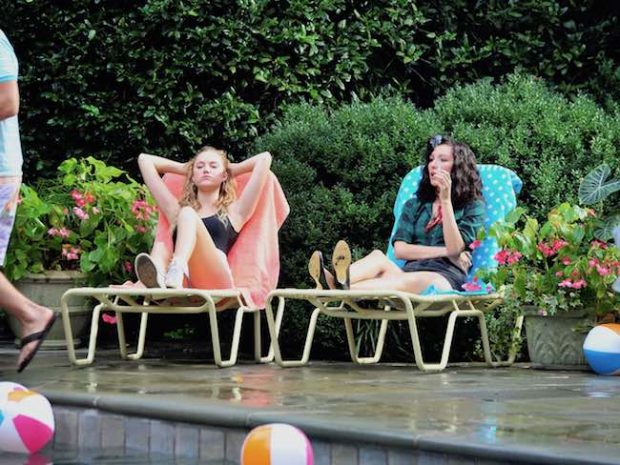
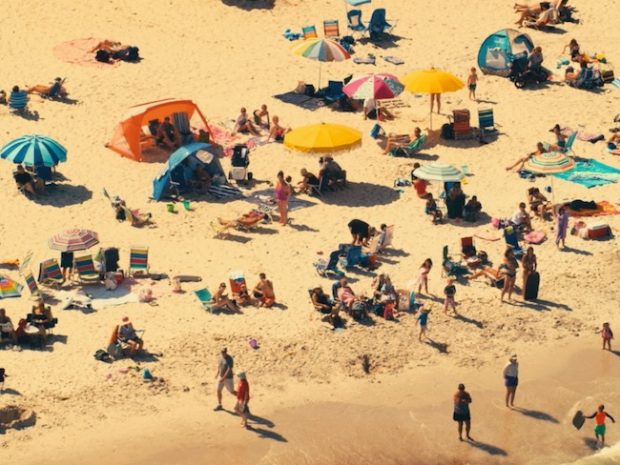
ーー舞台の中心となった街ケープコッドの何が特に映画的だとあなたの目に映ったのですか?
Elijah Bynum「実は私は幼少期に両親とケープコッドを訪れたことがあります。それは曖昧な記憶で、唯一の観光客である私たちは到着して、浜辺に寝転がったり、楽しい夏のひと時を過ごし、最後にはそこを去ったことしか覚えていません。私はどうしてケープコッドにいた人々がそこを去らないのかと当時考えていたことを覚えています。今思うと、彼らはバケーションではなくて、そこに暮らしていたんですよね。その人たちはすごくお金持ちというわけでもなく、望む時にすぐに立ち去れる余裕もなかった。彼らの仕事は観光客を喜ばせることで、冬の間くつろぎながら暇を潰し、観光客が戻って来る夏を待つ。のんびりとした夏のおとぎの国の裏側には暗くて悲しいストーリーがあったんです。脚本を書き始めた時、地元民の概念と夏の混雑が私の頭に浮かんでいました。地元の子供たちは小さい時にどのようにして自分たちの社会的な立場を学ぶのか。ハンターとマッケイラはもちろんどの階級に自分たちが属しているかに気づいていました。地元民で絶対に街を離れられない二流市民だとね」
ーー主人公のダニエル ミドルトンのキャラクターについて監督から聞かせてください。
Elijah Bynum「彼はアウトサイダーで一匹狼、どこにでもいるような無邪気で誠実でチャーミングな男の子です。でも、自分でその魅力に気づいていません。彼は自分が平凡だと思い込んでいて、自分の良さにまだ気づいていないのです。そして途方に暮れています。父の死後から自身のアイデンティティ、何が自分にとって特別なのか大切なのかを探し続けて彷徨っている。彼は今秋から大学へ行くので、ティーンエイジならヤングアダルトへ移り変わる時期として、この夏に自分が何者なのかを探し始めるのです。その年頃になると幸運にもアイデンティティを見つける者もいます。それが身近な友達との関係からなのか、音楽や運動などの特技なのかは人それぞれだけど、自分が惹きつけられる物を通してアイデンティティを見つけます。ダニエルはまだその旅の途中で、夏に送り出された新しい環境で自分を探し始め、それがトラブルの始まりとなるのです」
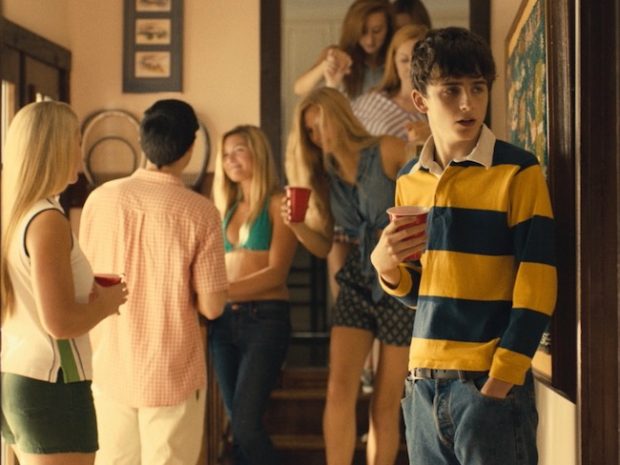
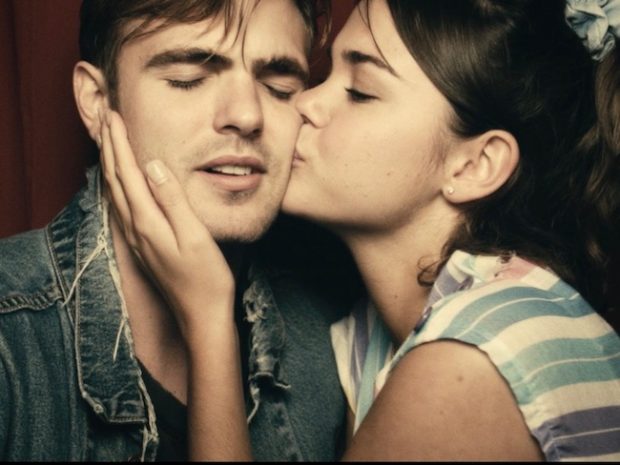
ーーハンター・ストロベリーというキャラクターに関してはいかがですか。映画の中で強い印象を残すハンターとダニエルの関係性、それがどのように変化していくかもお願いします。
Elijah Bynum「小さな街に住んだことがある人なら、ハンター・ストロベリーのような人物を1人くらい思い浮かべられると思います。彼はクールで、男の子がそうなりたいと憧れる存在、女の子がみんな付き合いたいと思うような、そこにいるだけでカッコいいと言われるクラシックなアメリカの男性像そのもの。彼にはミステリアスな点がいくつかあります。誰も彼が両親といるところを見たことがない、誰も彼がどこに住んでいるのか知らない、どうやって新しいカマロを手に入れたのか誰も知らない。彼は街で一番最初に煙草を吸い、タトゥーを入れ、自分のルールで生きていますが、私の経験から言うと、このタイプのキッズと深く関係すると、彼らの人生が外からみるほど華やかなものではないことに気付化されるのです。彼らはいつも何かを隠していて用心深いからミステリアスに見える。そして、想像以上に孤独です。ハンターのような男は大抵人生のピークを人生の早い段階で迎え、他に行き場がなくなります。彼らは一見クールに見えるけど、悲しさを隠し持っている。最初、それにダニエルは気づかなかった。ハンターの外側ばかり見ていて、彼にとってハンターは『Fight Club』でブラッド・ピッドが演じたタイラー・ダーデンのような存在で、ダニエルはハンターのようになりたかった。私がこの映画で描きたかったことのひとつは、ハンターが想像していたような完璧な人間ではないとダニエルが気づいた時の“落胆”や“失望”です」
ーーハンターとマッケイラにはジェームズ・ディーンや映画『陽のあたる場所』のキャストのような伝説的なオーラを感じました。彼らを縁取るあの特徴的なオーラをどのようにして作ったのか教えてください。
Elijah Bynum「私はこの物語を、アメリカ的な要素と伝承の感触を織り込んだ、小さな街の洗練された伝説にしたかった。この物語は初めからとてもメロドラマ的で、私たちはフィクションだと知りながらも展開されるドラマから目をそらせません。私はキャラクターをそれぞれ現実の人生よりも大げさに描くことで高揚感のある世界を作ろうとしましたが、それは彼らの大きな気持ちの動きを説明するのにちょうどよかった。成長や青春のエキサイティングなパートには、感情がどうしようもなく膨れ上がりますよね。息も出来ないほど、誰かに恋をするということは人生で一度だけ。とくに夏の間はホルモンが活発になって全てが美しく感じられます。感情が過度に加熱してしまうとたった3ヶ月も1年のように長く感じたり、逆に一瞬の出来事のように感じたりもするでしょう」
ーーなるほど。では、この映画で独特な構成やナレーションを使った理由は?
Elijah Bynum「本作はある13歳の男の子の目線を通してストーリーが進められています。彼がその町に住む年上の先輩たちを見ているという設定です。そしてこれが、彼の世界の全てなのです。1991年にはInstagramやTwitterは存在しません。彼らは、20分車を走らせれば別の街があって、また別の経済が成立していて別の伝説が存在しているなんて知りもしません。ハンターとマッケイラ兄妹が彼らにとっては全て。彼らへの強烈な憧れがどんなに男の子たちを酔わせるものであるかを描きたかったんです。だから、兄妹をイントロダクションの頭に持ってきて大袈裟に描きました。キッズ達にとって彼らへの感情は、かつて私がフットボールの試合に悪ガキが車を運転して来て降り立ったのを見たときと同じものです。それはまるでジェームズ・ディーンが降臨したような、映画のワンシーンのように感じられたものです。もちろん、成長して思い返してみると大したことではないと気づきます。私は映画の元となる実際にあった出来事をよく観察したことで、“噂”というものがこの物語を伝えるのに一番最適だと感じました。この話をまるで第三者から聞いたような、学校であちこちに広まる噂話のように、大袈裟だったり、ありえないことであったり、ミステリーのようなものにしたかった。私たちはこの話の結末も、この伝説がどこから始まったのかも確かではない。ただその狭間で生きることが刺激的であることを伝えたかったのです」
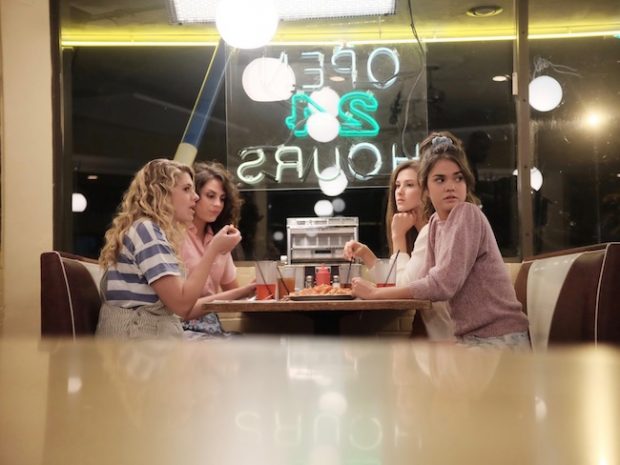
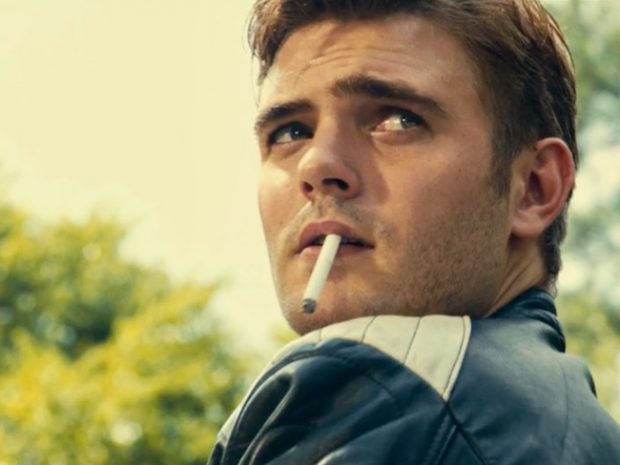
ーーキャリアについても質問させてください。脚本家として活躍するための最初のステップはどのようなものでしたか。
Elijah Bynum「まず、CAA(Creative Artists Agency)でアシスタントとして働き始め、別の脚本を書きました。それに選ばれたことがプロとしての自信を与えたと思います。そして、数千ドルの貯金しかないのに仕事をやめてこの脚本を書きました。これは私がこれまでに書いた脚本の二作目となります。私はその時23歳で、今ではとんでもなく古い過去のように感じます。正直に言うと、本当は楽しい映画を書きたかったです。そのほうがエージェントの目に留まると思ったし、将来の脚本の仕事につながると思ったからです。私が書いた脚本は町中をたらい回しにされ、ブラックリストに入りました(ブラックリスト/The Black Listは映画化されていない脚本を対象とした評価および映画製作マッチングのプロジェクト)。私の脚本家への道はそこから始まりましたが、その脚本には悲しみが残りました。というのも人々は物語は好むけれど、様々な理由で誰もその映画を作ろうとは思わなかったのです。なぜなら、これはR指定の小さなインディー映画でお金がかかるから。また、実際の結末が暗いという点も挙げられるでしょう。私は諦めて、ライターとしての仕事を探しました。しかし、他人の脚本の校正や漫画やグラフィックノベルのプレゼンは向いていませんでした。私はもっと刺激的なオリジナルのストーリーを書いて、最初から最後までを彼らに見せたいと思い続けていました」
ーー監督経験がなかったあなたが監督をやろうと決めたのはどうして?
Elijah Bynum「私が最も尊敬するフィルムメーカーは脚本も監督も一人で行って、監督として具体的なヴィジョンを持っている人でした。そして、私は今作をどのように見せたいかというヴィジョンを既に持っていました。なぜなら、何年も私の頭の中にそれがあったから。私たちのような脚本家は『誰か作ってくれないか』とミュージックビデオやコマーシャルの監督にオファーするというプロセスを踏むことが多いのです。そのプロセスで私たちが出会ったのは才能があって素晴らしい人たちでしたが、参加してくれる人はわずがで、誰一人私の脳内で描いているようには作れませんでした。そこでもし私がこの映画をどのように見られたいか、感じられたいかを正確に理解しているのなら、どうして自分で作ろうとしなかったのだろうと考えるようになりました。このアイデアをエージェントとマネージャーに伝え、電話越しに唖然とされていると感じたことを覚えています。当時25、26才の私は、ミュージックビデオ、ショートフィルム、コマーシャルなど何も監督したことがなかったのだから当然です。しかし、私は監督技術と俳優と働くことは独学で学べるし、周りの優秀な人を雇って目指すべき映画を作っていけると考えていました。今考えると正気の沙汰じゃないですよね。この映画を監督すること、作り上げるために何をするかわかっていたとしても、私はこのルートを他人には絶対にオススメできません(笑)」
ーーどのようにプロデューサーへプレゼンしましたか。最終的にどのようにして制作への糸口を見つけたのでしょうか。
Elijah Bynum「私はいくつかのシーンについて語り始めました。ハンター・ストロベリーが最初に登場する時、サウンドトラックでどのような音楽が鳴らされるか、どのようにカメラが彼を捉えるか、まるでジェームズ・ディーンを14歳の子供に説明するようにね。他の映画を参照しながら、若さの持つ活力とエネルギーをひときわ強調して話しました。しかし私は一切映画のプレゼンをしに歩き回ったりはしていません。Imperative Entertainmentのジェネラルミーティングに行って、私の脚本を読んだプロデューサーが気に入ってくれたのです。そこでひとりのプロデューサーにどうやってこのプロジェクトを進めて行ったら良いか相談しました。ミーティングが終わる頃には、彼らは私を監督にして映画を作りたいと言ってくれました。今までそんなに簡単に物事が進んだことはなかったし、今後もそんなに簡単に迅速に物事が進むことはないでしょう。とにかくその時の私は監督をしたいと言える充分な自信があったし、Imperativeも私に賭けると言ってくれて制作が決まったのです」
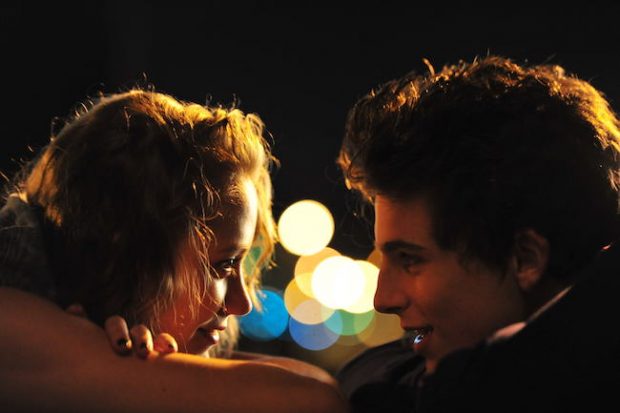
ーーキャストについての質問です。ティモシー・シャラメを初めに知ったのは?
Elijah Bynum「『ホームランド』で初めて彼を知りましたが、信じられないほど誠実で正直な10代を演じていたと思います。自信があって傲慢でチャーミングで、同時にすごく真面目で誠実な彼が妙に気になっていました。彼はまさに私の脚本の中のダニエル・ミドルトンだったのです。また、ティモシーが『インターステラ』に端役で出演していたのを観て、とても強い存在感を持ちながらも自然体であることをわかりました。数年経って彼はさらに彫りが深くなりハンサムになりましたが、少年っぽさがあり、どこか堅苦しそうだったり、少しナードにも見えます。そしてちゃんとした照明の中ではハンサムそのものになります。私たちは映画を通して、どこにでもいそうな男の子からドラッグディーラーの中心人物にまでなり得て、街一番の美女とも恋に落ちることができる人物が必要でした。スペクトルの両極端さを演じることができる人物を探すのは容易ではありません」
ーーこの役のためにたくさんの俳優と会いました?
Elijah Bynum「私がダニエルのキャラクターを描いた時には、オールドファッションなどこにでもいそうな男の子が必要だけど、まあ誰でも演じられそうだと思っていました。しかしながら、その男の子を見つけるのは想像していたよりはるかに難しかったのです。我々は早い段階からティモシーが適任だと考え、制作の初期段階から彼に会っていました。彼が打ち合わせに駆け込んできた時にピンときました。スウェットパンツをはいてバックパックを背負っていたその姿を見て、これがダニエルだと、彼こそが私たちが探していた男の子だと確信したのです。しかし私たちは注意深くことを進め、出資者をハッピーにするためにも、もっと大物も候補に入れていました。とはいえ、私はティモシーと連絡をとり続けて、きっとこの役は君に戻ってくると言っていたのですが。初めて彼に会ってからこの役をオファーするまで5、6ヶ月が経っていましたが、彼は初めからこのプロジェクトに情熱をもって臨んでいてくれていました。私も彼しかいないと一目惚れに近い確信を抱いていました」
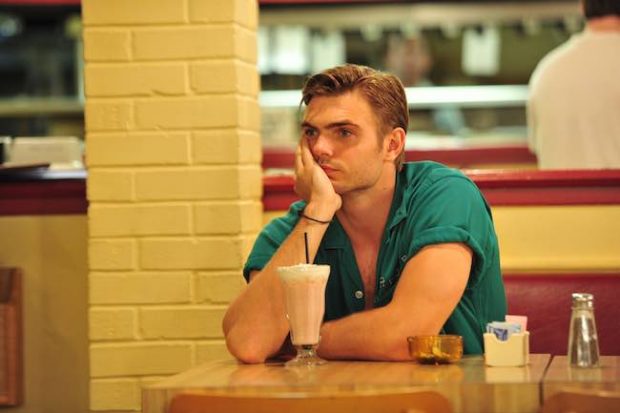
ーーハンター・ストロベリーを演じた新人俳優アレックス・ロウはどのようにして見つけたのですか?
Elijah Bynum「私たちはその点に関して非常に幸運でした。彼はどこからともなく現れたんです。私たちは次期ブラッド・ピットやリバー・フェニックスを探していましたが、もちろんそんな俳優は滅多にいません。数え切れないほどの才能ある俳優を見てきましたが、クラシックなアメリカの男性らしさを持ち、ワールドクラス級のルックスで、しかも魅力的でカリスマ性を兼ね備えた俳優を探すことは困難の極みです。ハンターという人物はその辺にいるくすぶった悪ガキではなく、壊れやすさも持ち合わせている。全てのキザな行動の下にあるのは人間らしさです。それを演じることができるには、人物像をしっかりと理解できるだけの想像力がなくてはなリりません。私たちは熱心に探し続けましたがなかなか見つかりませんでした。すると、アレックスが我々の前に突然現れのです。彼は私たちの元に自分で撮ったテープを送ってきてくれました。強いイギリス訛りで自己紹介をし始めたかと思うと、東マサチューセッツの住人もアクセントも話すことができたのです。その後彼と会いましたが、実際のアレックスはハンターと全く違っていました。しかし、私は彼にこのキャラクターに挑戦してもらうことにしました。彼は自分の人生からかけ離れた人物を演じるために相当な努力をしました。準備のために撮影が始まる2週間前にはケープコッドへ来て、地元の人々と仲良くなり、さらには観光客に大麻を売っているディーラーを見つけました。そのような経験は、アメリカのアクセントを習得するの助けとなったそうです。彼はすごく熱心で集中力のある俳優だと思います。他のキャストはすでに決まっていいて、刻々と時間が迫っていただけに、彼を見つけることができたのは本当にラッキーでした」
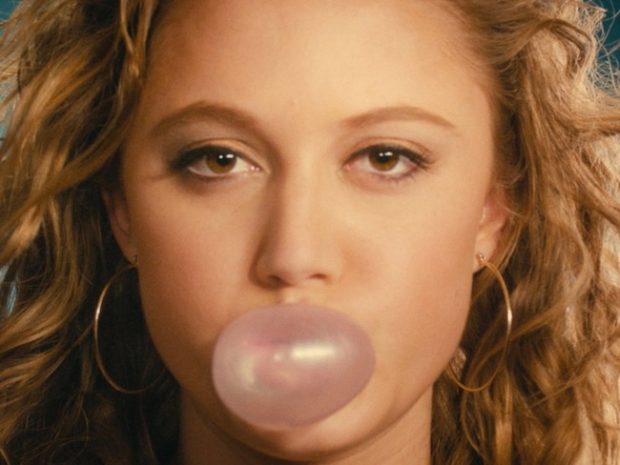
ーーマイカ・モンローに関しては『イット・フォローズ』での演技をもとにキャスチングしたのでしょうか?
Elijah Bynum「そうですね、『イット・フォローズ』が公開された時にマイカをキャスティングしようと思いました。彼女はその映画の中で簡単にやってのけているように見えたけど、そのキャラクターがしていたこととは、全体を通して恐怖に怯えていることだったのです。しかし、メロドラマ的な展開もなく、イライラするようなこともない状況の中でそのような演技をすることは難しいんですよ。マイカはマッケイラを演じる上で必要な人間性を持ち合わせていて、また控えめな演技でも存在感を示すことができました。マイカはドラマや感情が透けて見えるような演技をするのがとても上手です。彼女をクローズアップした撮影は素晴らしくて、誤魔化しなしでカメラを受け入れることができるのです。『イット・フォローズ』の時にその印象がありました。ティモシーとの台本の読み合わせでは、私が生きた数年を演じる彼らを見ることができて、脚本家としてとても感動的な瞬間でしたよ」
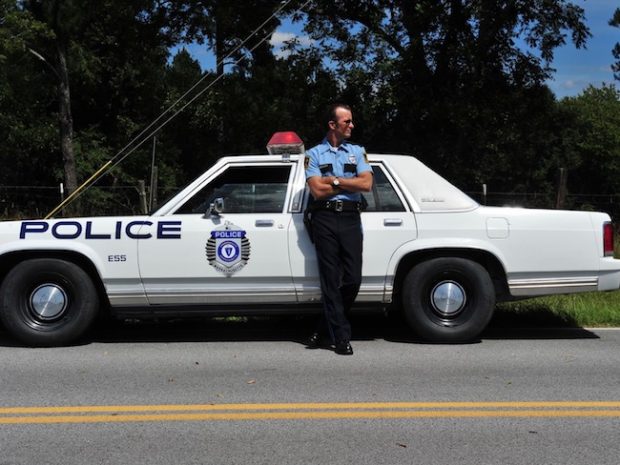
ーートーマス・ジェーン演じる詩的な雰囲気を持つ警官やウィリアム・フィクナーのクレイジーなコカインディーラーなど大人の役者も際立っています。
Elijah Bynum「トーマスが嫌いな人はまずいません! 私はずっと彼のファンです。彼と仕事ができるなんて思ってもいませんでした。我々は一風変わったエネルギーを持っている人を探していました。そんな時にトーマスがオファーを受けてくれて。私は詩人を挫折して小さな町の警官になってしまうようなキャラクターを考えるのが好きなのですが、彼は癖が強すぎず、退屈すぎない、とても素晴らしい演技をしてくれました。彼が私の書いた脚本と違う演技をしたことに気がついた時、一瞬眉根を寄せましたが、私は彼の作り上げるものに確かな自信がありました。彼は映画の中でとっても面白い役どころですよ。
主要な撮影の後にフィクナーの演じるキャラクターのシーンを撮ったので、たった1日だけの撮影でした。私たちはみんな彼の出演作が大好きで、実際とてもインパクトのある俳優です。彼がカメラに写っているときは本当に目を逸らせない。だからこのたった1日のために彼が来てくれたことにみんなは本当に驚きました。オリジナルの脚本では10分から12分のシーンでしたが、彼の演技が好きすぎて、それに合わせて6分という短いシーンになってしまうトラブルもありました。ウイリアムは救世主で、私が脚本では見えてなかった何かを持ってきてくれた。それは俳優から与えられるもっとも刺激的なことかもしれないですね」
ーー映画の中の音楽も重要な役割を果たしていますね。
Elijah Bynum「脚本を書くときはいつも曲のリストも書き添えていました。そのシーンのトーンやエネルギーに影響するからです。本作では25曲の映画で使いたいと思った音楽がありましたが、結局1曲も使いませんでした。使用した楽曲は私が思っていたものと違っていましたが、私が最初に選曲していたものと同じジャンルのもの。私はただ1991年の曲からは選びたくありませんでした、それだと時代設定が簡単に整ってしまうし、ビルボードヒットから選んでしまうのは不誠実ですから。みんな特定の時代を作るのに必死になりすぎじゃないですか。これは決まった年代や時代が与えられたノスタルジックなものではなく、もっと曖昧な遠い過去や過ぎ去った時代を探る作品です。人がどう曖昧に過去を記憶しているのかをね。この映画にしても、どのように役者によって演じられていたかではなく、どんな物語だったかを覚えられている作品であってほしい。音楽はキャラクターの感情が溢れ出るのが感じられるようなものであってほしかったので、年代があっているというよりも感情に寄り添った選曲をしました」
ーー音楽の織り込み方について、どうやってこんなにも馴染ませることができたのでしょうか?
Elijah Bynum「正しい曲を選んだら自然と馴染むことができます。曲の一節が流れて来たときに私はすぐにこの曲がどんな作品に使うことができるかイメージします。それには映画的なセンスは必要ありません。ただいつもその曲に合うシナリオが浮かぶのです、いつもごく自然に」

ーー本作はケープコッドの代わりにアトランタで撮影したそうですが、どのようにして南の風景を北東のように見せたのでしょう。
Elijah Bynum「ケープコッドでの撮影を予定していて、他の場所で取ることは冒涜に値すると考えていたので、そのロケーションで撮影しないのならば映画を作らないと傲慢な宣言をしていたくらいです。しかし、プロデューサーからケープコッドでの撮影は難しいと言い渡され、私は他の撮影場所を探さなければいけませんでした。その後すぐにケープコッドにそっくりな場所を見つけました。羽目板の家、白い屋根、黒いシャッター、綺麗に刈り込まれた芝生、星条旗が至る所にあって、ドライブウェイが砕いた貝殻で作られていて、ユニークな木々が海に接している。我々は現代のジョージアを1991年のケープコッドに見せるという挑戦をしました。しかし、ただ建物が違うだけではなくて、木から何から全く違うものでした。日の出や日の入りの空の見え方も違います。ロケーションを決めるのに撮影前の準備の90%を使って、その間にケープコッドを模造するにぴったりの小さな街角を見つけました。私たちはジョージアで撮影していることを常に隠さなければならなかったので、場所がわかってしまうようなワイドショットも撮ることができず、狭い撮影範囲で撮らなくてはならず、そのために予定していた撮影方法も変えました」
ーージョージアにあなたが望んだ場所がを見つけることができて嬉しかったですか?
Elijah Bynum「探していた場所はそこでした。特に私たちは映画の舞台と違う場所でその時代を作ろうとしていたので、思っていたより探すのに苦労しましたしね。例えば、ハンターのガスステーションがモンローと呼ばれる小さな街にあったので、アトランタから1時間半から2時間ほど離れた場所で撮影の大半が行われました。さらにアーケードを探すのはとても大変だと判明して、そこから遠く北へと向かいました。ハンターとダニエルのビーチでのシーンは、浜辺まで4時間俳優たちと一緒にドライブしたんですよ。少ない予算で55箇所での撮影をしましたが、もう一度同じことをしろと言われたら、ロケーションの数を考え直します!」
ーーバビエル・フリアを撮影監督に選んだ経緯は?
Elijah Bynum「初監督として、経験豊富な撮影監督を選ぶことはとても大切なことでした。たくさんの若い撮影監督を見てきましたが、多くがヴェリテスタイルに惹かれていて、手持ちカメラで、自然光を好み、ザラザラとしたドキュメンタリーの影響を受けていました。フレーミングやライティングについてもっと古典作品のアプローチができる若い撮影監督を探すのに苦労しました。印象的でセンセーショナルなシーンをさらに高められ、それを自然に感じられるように撮れる人を探していたのです。『人生スイッチ』を映画館で見たとき、素晴らしい映画だという印象だけでなく、信じられないくらいよく撮られていると思いました。バビエルは映画的な目を持っているまさに私が探していた人物だったのです。また彼はアメリカ人ではないので、小さな町のアメリカンな暮らしに対して独特の視点を持っていました。我々のメインキャラクターであるダニエルはアウトサイダーなので、我々が取るよりも違った視点でアメリカを見ることができる撮影監督の目を通して映画を見る方が面白くなると思いました」
ーーこの映画を観た人に何を感じ取ってもらいたいですか?
Elijah Bynum「自分自身と世界に対して何かを証明すると決意した彼らは、凄まじい集中力と活力で望むものを追い求めます。しかし探していたものを見つけた時に、実はそれが欲していたものではないと気づくのです。私はそんなキャラクターに興味があります。人は人生の流れに飲み込まれていて、うまくいけば次は違うやり方ができると学ぶことができます。しかし、過去へは戻ることもできないし、起こってしまったことを正すこともできない。私が読んだ小説や観た映画の中だけでなく、私自身の実際の経験から、物事を違ったやり方でやりたいと思ってもできない時の疼き、悩み、切望といった感情を知っています。私たちは最終的にこれが世界の仕組みであるということを受け入れなければなりません。それが成長することの意味だと思います」
『HOT SUMMER NIGHTS/ホット・サマー・ナイツ』
8月16日(金)より新宿ピカデリーほか全国ロードショー
hot-summer-nights.jp
監督・脚本:イライジャ・バイナム 出演:ティモシー・シャラメ、マイカ・モンロー、アレックス・ロー、ウィリアム・フィクナー
原題 :Hot Summer Nights 2018/アメリカ/英語/107分/シネマスコープ/5.1ch
配給:ハピネット/配給協力:コピアポア・フィルム PG-12指定 © 2017 IMPERATIVE DISTRIBUTION, LLC. All rights reserved.
(This interview is available in English)
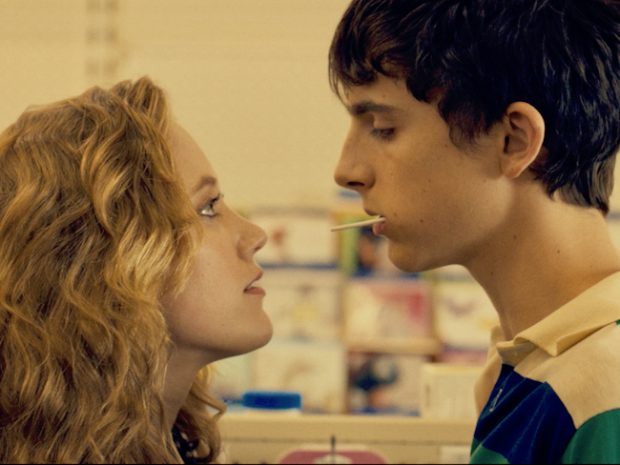
ーーWhat was the origin of this story?
Elijah Bynum: I went to college in Massachusetts and during my time there I met two guys very similar to Daniel Middleton and Hunter Strawberry in the movie one was more soft-spoken and shy, the boy next door type. He had started a weed-dealing business with another guy, a swaggering alpha guy with a real darkness in him, someone you would never expect to be in the same room as his business partner. They were an unlikely pair, selling weed around the dorms at school. Quickly it became five dorms and then ten and suddenly everybody on campus was getting their weed from them. They started selling off campus and before they knew it they were in over their heads. Business was growing at a faster rate than either could imagine, and they were driving to Upstate New York and Pennsylvania. I watched it all as an innocent by stander, heard about the stories passed along. Everyone was talking about them, everyone knew what they were up to. The seams of their relationship started coming apart, they began distrusting one another, and it all ended in a melodramatic fashion that I won’t get into here. They both dropped out of school overnight and disappeared. There was something tragic about their story, this unlikely friendship, their quick rise and dramatic fall—it all played out in one year. Years later, when I was looking for a story to tell, their story kept coming back to me.
ーーWhy did you decide to set it in 1991?
Elijah Bynum: I was four years old in 1991 so I don’t remember much about that year at all, but I wanted the story to take place in the past and feel like a fuzzy memory, as though it was driven by emotional logic rather than factual logic. This is very much an emotional coming of age story. When we look back at our memories, we’re not remembering factually what happened, we’re remembering how it made us feel, which for me made for a better cinematic experience than trying to ground the story in a realist way I thought it would play better as a small town fairytale or legend. I also wanted to tap into one of the last eras before the internet and cell phones, when small towns felt more isolated and legends could blossom like old folklore. I started writing well before the ‘80s-revival craze, before Stranger Things and Ready Player One, and I wasn’t interested in the ‘80s. But I wanted to set the story in a period that felt familiar enough that everyone now could remember it, plus the early ‘90s haven’t been revis- ited much yet. I learned that Hurricane Bob happened in 1991 on Cape Cod, so that’s where I centered the story.


ーーWhat made Cape Cod especially cinematic in your eyes?
Elijah Bynum: I remember visiting the Cape as a child with my parents and I had these vague, foggy memories of understanding that we were only visitors there, coming in and having our summer fun, laying on the beach, but eventually leaving. I remembered thinking how some people on the Cape didn’t get to leave this wasn’t vacation for them, it was their life. Those people didn’t particularly have a lot of money. They didn’t get to just pick up and leave whenever they wanted. In a way their job was to make sure the visitors were happy, then they were to sit back, grind out the winter, and wait for the visitors to return again. Here’s this idyllic summer wonderland that has a darker, sadder story underneath. When I started writing my story, this notion of the townies and the summer crowd kept bubbling up in my head. How the local kids learn where they t in to the social structure at a very young age. The characters of Hunter and McKayla are certainly aware of what social class they fit into—they’re townies, the people who are never going to leave, second-class citizens in their own home.


ーーHow would you describe your protagonist Daniel Middleton?
Elijah Bynum: He’s an outsider, a loner, the boy next door who’s innocent and sincerity is charming but he isn’t necessarily aware that he’s charming. He’s completely average, or so he thinks. He certainly hasn’t found what he’s good at yet. And he’s lost, searching for an identity after losing his father, searching for something that makes him feel important, special and worthwhile. He’s going off to college in the fall so there’s a transition taking place; he’s blossoming from a teenager into a young adult and he’s trying to find out who he is. Some of us at that age are lucky enough to find things that help us identify, whether it’s a group of friends, or a special talent like music or athletics—things you can gravitate towards and find self-identification through. Daniel doesn’t have this, but he’s looking for something in this new environment he’s been sent to for the summer. And he finds trouble.
ーーDescribe the character of Hunter Strawberry and the dynamic between Hunter and Daniel that comes across so strongly in this movie.
Elijah Bynum: Anyone who has lived in a small town knows some version of Hunter Strawberry, he’s the cool kid, the guy all the other guys want to be like, the guy all the girls want to be with, that classic American archetype who’s effortlessly cool. There’s something mysterious about him, you never see him with his parents, you don’t know where he lives, or how he got that new Camaro. But he’s the first kid in town to smoke cigarettes and get a tattoo. He lives by his own rules, etc. What I’ve learned from my own experiences with these types of kids is that once you get to know them, you come to discover that their lives are never as pretty as it seems from the outside. There’s a reason why they’re guarded and mysterious, because they’re usually hiding something. And they’re lonelier than you can imagine. Guys like Hunter often peak early on in life, there aren’t many places for them to go. As cool and dreamy as they seem, there’s something tragic inside them, which Daniel doesn’t realize at first. He sees the exterior of Hunter, who becomes a Tyler Durden to him everything he wishes he could be. Part of what I wanted to explore in the movie is Daniel’s disappointment when he realizes Hunter isn’t everything he thought he was.
ーーYou give Hunter and McKayla a legendary aura, there’s a touch of James Dean and A Place in the Sun in these kids. Talk about creating this particular aura around them.
Elijah Bynum: I wanted the story to feel like a small-town urban legend with some elements of Americana and folklore woven in. The story is so melodramatic and over the top, you have to suspend disbelief and go with the drama of it all. I tried to create a world that felt heightened everyone is larger than life, which helps explain the big emotional swings in the story. One exciting part of growing up or coming of age is how emotions can feel amplified, the person you have a crush on is the only person you’ll ever love in your entire life, and you won’t be able to breathe again. Everything feels embellished, especially during summertime when hormones are racing. When your emotions are in overdrive, three months can somehow feel like both a year and only a matter of fleeting moments.


ーーDiscuss the unique framing and narration you use in the movie.
Elijah Bynum: Hot Summer Nights is told through the lens of this random 13 year old boy the narrator in the movie who is watching the older kids in town. And it’s his whole world. There wasn’t Instagram or Twitter in 1991. A kid in his situation wouldn’t take into consideration the fact that 20 minutes down the road there is another town with its own ecosystem and legends. But in that moment Hunter and McKayla Strawberry were everything to this kid. I wanted to try and capture how intoxicating something like that feels. We pushed it to the extreme and gave both characters over the top introductions that’s how I remember feeling when I caught a glimpse of the bad boy when he got out of his car at the football game. It felt like a movie, like James Dean had arrived. Of course when you grow up and look back on it all, you realize how silly it all seemed. Also, since the true story behind the movie came to me through observation and rumor I felt this was the best way for me to pass the story along. I wanted it to feel like stories heard third hand, rumors passed around your high school, sometimes hyperbolic, sometimes illogical, building toward myth. We aren’t sure where the factual accounts end and where the legend begins. Living in that in between space was exciting.
ーーWhat initial steps did you take to start getting your script out into the world?
Elijah Bynum: I was working as an assistant at CAA and I’d written another script, which got optioned and gave me the confidence to know that I could do this professionally. So I quit my job with a few thousand dollars in savings and wrote Hot Summer Nights. It was the second script I’d ever written, and I was 23 years old at the time, which feels like ancient history now. I honestly just wanted to write something I felt would be a fun movie, one that might help me obtain an agent and future writing jobs. The script got passed around town and made the Blacklist, and a writing career came out of it but the script just kind of sat there. People liked the story, but for a number of reasons nobody wanted to make the movie it was R rated, and for a small indie it was on the expensive side, budgetwise. Also, it had a much darker ending originally. I went off and took some assignments as a writer for hire, but I wasn’t very good at rewriting other people’s scripts or pitching comic books and graphic novels. I get more excited creating original stories, trying to see them all the way through.
ーーHow did you decide to direct this movie without having any prior directorial experience?
Elijah Bynum: The filmmakers I most look up to are those who either write and direct or have a very specific vision as a director. And I had a vision of what Hot Summer Nights should look like, because I’d been carrying it around in my head for years. We had gone through the process of attaching music video and commercials directors, anyone who could get it made. And while the people we were meeting with were talented and great, no one came in and laid the movie out like I had done in my head. I got this strange, rather arrogant idea that if I knew exactly how this movie should look and feel why couldn’t I direct it myself? I remember telling my agent and manager this and sensing them cringe over the phone. I was 25 or 26 at the time and hadn’t directed anything; no music videos, no short films, no commercials. Nothing. But I knew I could teach myself the technical aspects of directing and working with actors, and I could hire good people around me and convey to them what movie we were making. It sounds insane now. Having directed this movie and knowing what it takes to get something made, I wouldn’t advise going this route.
ーーHow were you pitching this movie to producers, and how did it ultimately find its way into production?
Elijah Bynum: I’d start talking about certain scenes, like when Hunter Strawberry is first introduced, and maybe describe the piece of music that’s playing on the soundtrack, how the camera moves in on him, like we’re reintroducing James Dean to a 14 year old kid. I emphasized the youthful exuberance and energy and made references to other films. But I didn’t really go around pitching the movie. I went into Imperative Entertainment on a general meeting they had read the script and liked it and I told one of the producers how I would direct the project. By the end of the meeting, they wanted to make the movie and they wanted me to direct it. Nothing has been that easy since, and I don’t expect anything to ever happen that easily or quickly again. But in that moment I had enough confidence to say I wanted to direct, and Imperative sparked to it and they rolled the dice on me.

ーーHow did Timothée Chalamet first come to your attention?
Elijah Bynum: I had seen him on Homeland and thought he portrayed a teenager with incredible truth and honesty; there was something about him that was confident and lovably arrogant but at the same time very earnest and sincere. And that was Daniel Middleton in my script. Timothée also had a small part in Interstellar, which I found to be very strong and natural. As the years have gone by, he has become more chiseled and handsome, but at that time there was something very boyish about him that at first glance was even bookish and a little nerdy. In just the right lighting, he becomes handsome. We needed someone who could transform over the course of the film from a boy next door into a drug kingpin; someone the most sought after girl in town is in love with. And it’s not easy to find someone who could play both ends of the spectrum.
ーーDid you look at a bunch of actors for this role?
Elijah Bynum: When I wrote the character of Daniel, it seemed like there would be a thousand kids who could play this role; we needed an old-fashioned boy next door, but finding one ended up being much more difficult than we imagined. We had thought of Timothée very early on and met with him in the earliest stages of production. He came bounding into the meeting in sweatpants with a backpack on and we hit it off immediately this was Daniel, this was our guy. But we went through our due diligence, trying to make the financiers happy, and looked at more established names. I kept in touch with Timothée and told him to hang in there, that we’d come back to him. There were five or six months between our first meeting and when we offered him the role, but he was very passionate about the project from the beginning and I knew he was the one. It was love at first sight.

ーーAlex Roe is a real discovery as Hunter Strawberry. How did you find him?
Elijah Bynum: We got really lucky with him; he came out of nowhere. We wanted to find the next Brad Pitt or River Phoenix, but how many of those are out there? We looked at a number of talented actors but finding that balance of classic American masculinity, world-class good looks, charm and charisma proved difficult. Hunter is not some smoldering bad guy, there’s vulnerability there, too. Beneath all the posturing is a human being, which is difficult for an actor because he has to carry the weight of this mythical figure. We looked and looked and couldn’t find anyone. Then Alex Roe came to our attention via a self-tape he submitted. He introduced himself in his thick British accent and immediately switched the dial and became this Eastern Massachusetts townie. Then I met with him. Alex is nothing like Hunter Strawberry in his real life, they couldn’t be more different. But I think that’s what allowed him to attack the character in a certain way he was exploring someone who was far removed from himself in real life. To prepare, he went up to Cape Cod for two weeks before filming, hung out with the locals and somehow found some dealers who were selling weed to tourists, which helped him master the accent. He’s a very committed, focused actor and we were lucky to find him, because the clock was ticking; all the other parts had been cast.

ーーDid you cast Maika Monroe on the basis of her performance in It Follows?
Elijah Bynum: Yes, we were casting right when It Follows came out. She makes it look so easy in that movie, but when you think about what the character is doing, she’s terrified for the entire movie, and that’s hard to sustain without it becom- ing melodramatic or annoying. Maika brought a humanity to it that I felt was much needed for the role of McKayla. We needed someone who would come in and underplay everything. What Maika does really well is undercutting the drama and the emotion. She also looks terri c in close-ups, she photographs very well; she knows how to lean into the camera without it feeling inauthen- tic—that certainly came across in It Follows. She came in and met me and then we did a chemistry read with Timothée. It was exciting for me as a writer to sit back and watch them do scenes I had lived with for a few years.

ーーSeveral of the adult performances stand out including Thomas Jane as a poetic cop and William Fichtner as an unhinged coke dealer.
Elijah Bynum: Who doesn’t love Thomas Jane? I’ve been a fan of his for as long as I can remember, but we didn’t think we could get him. We wanted someone who had that strange energy only he can bring, and he agreed to do it. I like to think of his cop character as a frustrated poet who became a small town police officer. He showed up and did an excellent job making sure this character wasn’t too bland or vanilla. At times I had to squint and realize he was doing something different from what I had written in the script, but I had confidence in him to create something that on the page is a very straightforward role. He’s fun to watch in the film.
As for Fichtner, we finished principal photography and shot his scene sometime afterward. We needed someone who could come in and do one day of work. But we all loved William’s body of work; he’s such an intense actor. He has one of those faces that you can’t look away from when he’s on camera. He came in and blew us all away. The scene was originally much longer ten or twelve minutes and I had trouble cutting it down because I loved what he was doing in it. Now it’s closer to six minutes. William was a savior and brought something to the part that I didn’t see on the page, and that’s maybe the most exciting thing you can get from an actor.
ーーThe music in this movie is almost a star unto itself. Talk about your song choices.
Elijah Bynum: Anytime I write a script I put together a song list that I write to, because it helps influence the tone and energy of whatever scene I’m writing. With Hot Summer Nights I had 25 songs I went into the movie hoping to use, but we couldn’t afford a single one of them. Every song in the movie is different from what I thought it would be, but they exist in the same musical space as my original choices. I didn’t just want to pick songs from 1991 it’s too easy to establish time and place by picking Billboard hits from the era, it feels dishonest, like you’re trying too hard to create a specific era. This wasn’t an exercise in nostalgia for a given year or era, it was more about finding this fuzzy distant past or bygone era. How someone might vaguely remember “the past”. Again, I wanted this movie to be about how a story is remembered, not about how it actually played out. We wanted the music to feel like it was coming out of the characters’ emotions, so we chose music that felt emotionally right as opposed to chronologically right.
ーーCan you talk about your approach to weaving songs into your movie, and how you were able to accomplish it so seamlessly?
Elijah Bynum: As far as knowing the right song to pick, I’m not sure where that comes from. When a piece of music starts playing, I immediately see images of what this song could play to, and not necessarily in a cinematic sense. I’ll just start getting images of what scenario a given song might play well with that’s something that has always come naturally to me.

ーーYou shot Hot Summer Nights in Atlanta, as a stand in for Cape Cod. How were you able to make the South look so much like the North east?
Elijah Bynum: I had always planned on shooting on the Cape and remember quite arrogantly proclaiming I wouldn’t make the movie if we couldn’t shoot on location, anyplace else would be sacrilege. But the producers told me that wasn’t going to happen, so I had to figure out a way to make it work somewhere else. I fell in line pretty quickly after that. There isn’t really another place in America that looks like Cape Cod, with its clapboard houses, white shingles, black shutters, manicured lawns, American flags everywhere, driveways made out of crushed seashells, and the unique tree line bordering the ocean. We had the challenge of trying to make modern day Georgia look like 1991 Cape Cod. And it’s not just the architecture that’s different everything from the trees to the way the sky looks at sunrise and sunset are different. During the location scouting process, which took up 90 percent of our pre-production, we were able to find enough little corners that let us fake Cape Cod pretty effectively. It also changed the way I had planned to shoot the film in the sense that I knew we had to come in a lot tighter on our coverage. We weren’t going to have as many establishing or wide shots, because we were constantly trying to hide the fact that we were in Georgia.
ーーWere you able to find the specific locations you wanted in Georgia, like the drive-in movie theater, and the small-town county fair?
Elijah Bynum: The locations were there, but they were harder to find than we thought, especially because we were trying to make it look period in a different region from the film’s setting. Most of the time we were filming an hour and a half to two hours outside of Atlanta Hunter’s gas station was in a small town called Monroe, for example. The arcade proved to be very difficult to find and it wound up being far away. For the beach scene with Hunter and Daniel we had to travel four hours to the coast to shoot the actors sitting next to the ocean. We had 55 locations and we were doing it all on a pretty small budget. If I had to do it over again, I would probably reconsider having as many locations in the film as we did.
ーーHow did you choose Javier Julia to be your cinematographer?
Elijah Bynum: Being a first time director it was very important to find an DP with a ton of experience. A lot of younger cinematographers we looked at have gravitated towards a verité style that is more hand held, using natural lighting and a gritty documentary feel. I was having trouble finding a young cinematographer who had a more classically cinematic approach to framing and lighting a scene I wanted someone who could heighten scenes in an almost sensationalized, impressionistic way while keeping it feeling organic, natural. I saw Wild Talesin a theater, and not only did I think the movie was brilliant, but I thought it was shot incredibly well. I knew Javier had the cinematic eye I was looking for, but he also had a unique point of view on small-town American life because he’s not American. Our main character is an outsider, a fish out of water, so I thought it would be interesting to see the movie through the eye of a cinematographer who views the country through a different lens than we do.
ーーWhat do you want audiences to take away from the movie?
Elijah Bynum: I’m interested in characters who go after something with such focus and vigor because they are determined to prove something to themselves and the world and then when they find what they are looking for, they realize it’s not what they wanted. You get swept up in the current of life, and hopefully you learn to do things differently next time, but you can’t go back and set things right in the past. There’s something haunting about that, in novels I’ve read and movies I’ve seen, but also in real life experiences of my own that aching, gnawing, yearning feeling of wanting to do things differently and not being able to, and ultimately having to accept that this is how the world works. I think that’s what it means to grow up.
関連記事のまとめはこちら
https://www.neol.jp/movie-2/
この記事に関連するニュース
-
「私たちを人間として扱ってほしい」やまぬ爆撃、家族との別れ…ガザ脱出の友人を探し記者がエジプトへ「戻りたいけど誰も戻れない」【脱出者が語る惨状】
北海道放送 / 2025年1月18日 9時45分
-
「そっくりじゃんって思ったら本人」 小峠英二、英アパレルブランドXにまさかの「レジェンド」として登場
J-CASTニュース / 2025年1月15日 15時40分
-
旅行者はGoogleを活用し続けつつ、AI生成のソーシャルメディアコンテンツにも肯定的
PR TIMES / 2025年1月14日 10時45分
-
この英語ってどんな意味?「 plot twist 」
OTONA SALONE / 2025年1月11日 7時0分
-
英語で「それは大変だったね」はなんて言う?
OTONA SALONE / 2025年1月9日 7時0分
ランキング
-
1共通テストで不正4件 机上に数学の公式書き込み、試験終了後に解答
毎日新聞 / 2025年1月19日 22時41分
-
2「認知症」は治るの? 予防法や初期症状など気になるギモンを医師が解説
マイナビニュース / 2025年1月19日 10時30分
-
3iPhoneで「見られたくないアプリ」を隠せるって本当? アプリを非表示にする方法とは
オールアバウト / 2025年1月19日 21時25分
-
4たこ焼き屋を営んでいた50代男性の後悔。「タコの代わりに入れたもの」がバレて店が潰れるまで
日刊SPA! / 2025年1月19日 8時53分
-
538万円で“運転免許不要”な「“軽”自動車!?」がスゴかった! 400kgの“超軽量ボディ”&MT採用の「斬新モデル」! “RR”採用の全長2.7m級“2人乗りマシン”「フライングフェザー」とは
くるまのニュース / 2025年1月19日 16時10分
記事ミッション中・・・
記事にリアクションする
![]()
記事ミッション中・・・
記事にリアクションする

エラーが発生しました
ページを再読み込みして
ください



